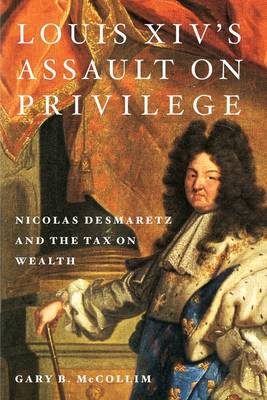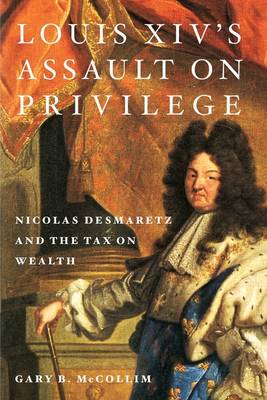
- Retrait gratuit dans votre magasin Club
- 7.000.000 titres dans notre catalogue
- Payer en toute sécurité
- Toujours un magasin près de chez vous
- Retrait gratuit dans votre magasin Club
- 7.000.0000 titres dans notre catalogue
- Payer en toute sécurité
- Toujours un magasin près de chez vous
209,45 €
+ 418 points
Description
The government of Louis XIV developed two taxes during the last thirty years of the king's reign that forced the privileged to pay. This book is a study of how those taxes developed and what caused them to be adopted. Louis XIV's Assault on Privilege examines Nicolas Desmaretz, one of the most important finance ministers of the Bourbon monarchy. McCollim brings to life the man who was arguably the central figure in the final transformative years of Louis XIV's reign. Controller General Desmaretz was the nephew of famed finance minister Jean-Baptiste Colbert and had extensive experience in the administration prior to 1683 when he suffered disgrace. His expertisewas so renowned in his day that other chief financial officials sought his advice in secret. Desmaretz has been called the ablest man ever to head French finances, and the war financing problems he faced from 1708-14 the greatestchallenge faced by the Bourbon monarchy until the French Revolution. Desmaretz became one of the chief financial officials early in the War of the Spanish Succession and took full charge of French finances from 1708-15.In that time, he introduced one of the two most radical financial measures ever taken by the Bourbon monarchy: the dixième, a tax on income. This tax revolutionized the relationship of French elites to the Crown because iteliminated the issue of status that affected all other forms of taxation: the dixième fell on all income, no matter the recipient. The tax lasted until 1717, appeared again during the Wars of the Polish (1733-35) and Austrian (1743-48) Successions, and became permanent, in a reduced form, as the vingtième, in 1749. The story of the dixième has been oddly ignored by fiscal historians. In his rich analysis, McCollim lays outfor historians precisely how the royal financial council actually made policy. His book establishes once and for all that from the perspective of state finance, and state taxation, the post-1710 French monarchy had left far behindthe institutional framework of the seventeenth century. Gary B. McCollim received his doctoral degree in history from The Ohio State University and is a retired federal employee.
Spécifications
Parties prenantes
- Auteur(s) :
- Editeur:
Contenu
- Nombre de pages :
- 330
- Langue:
- Anglais
- Collection :
- Tome:
- n° 15
Caractéristiques
- EAN:
- 9781580464147
- Date de parution :
- 30-06-12
- Format:
- Livre relié
- Format numérique:
- Ongenaaid / garenloos gebonden
- Dimensions :
- 152 mm x 231 mm
- Poids :
- 703 g

Les avis
Nous publions uniquement les avis qui respectent les conditions requises. Consultez nos conditions pour les avis.






